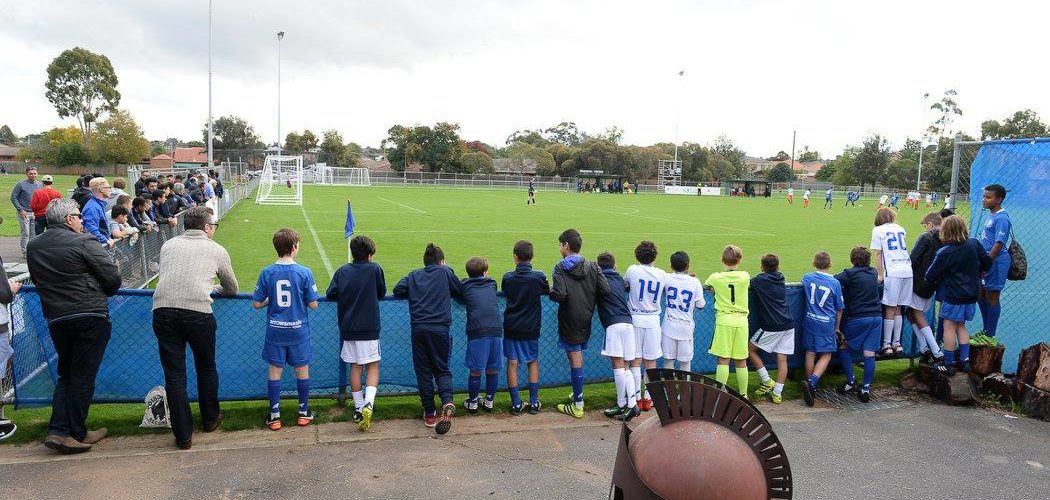Words: Ljuban Palinic. Image: Mark Avellino
Parents obviously contribute enormously to the wellbeing and development of their children. Youth football parents are so important in helping their children develop into a better individual footballer. Every parent wants the best for their child, however, the best can sometimes be misunderstood and can impact the child’s football development without even knowing it. Parents can either have a positive or negative influence on their child’s sporting life, depending on their attitude and behaviour.
Below are 11 tips for parents to help their children in their football development:
1. Avoid giving instructions from the sideline
I encourage parents to allow children to play the game and make their own decisions and their own mistakes. This is a pivotal part of learning in youth player development. Screaming from the sidelines and telling your child to ‘kick, pass, shoot, man on’ is only impacting on their own football development and player game awareness – a vital component in becoming a better footballer. Avoid using your own speed of thought and allow them to develop their own. Focus on creating an environment that allows your child to develop to the best of their ability and so that your influence from the sidelines during training and matchday allows best learning practice to occur. Screaming can only cause confusion for the child, as it can be the complete opposite instruction the coach is asking your child to do, leaving them unsure of the correct action to take!
Dan Abrahams, sports psychology consultant and author of Soccer Tough & Soccer Brain suggests that getting involved in the technical, tactical and physical side of practice is not the best way to help your child’s football development. However, getting involved in the sports psychology and the mental side of development is definitely an area a parent can help. His advice is that parents can use positive questioning to allow children to reflect on the positive moments in the game to increase their confidence and performance. Focus on the good things they did during the game and how that made your child feel.
2. Let your child be young
Football is a game of enjoyment and should be an opportunity for your child to have fun and express themselves. Allow your child to love the game first and foremost and avoid living your dreams through them. Understand your child’s football development should be a positive experience, one they always remember. Avoid creating expectations of an adult and remind yourself you were a child once before. They joined the sports because they enjoy playing so allow that process to continue.
3. Encourage control in the backline
I regularly see parents screaming, “kick it long” or “clear it” especially in the back line when there is time and space on the ball.
We all want the best result but what result matters to you more; the short-term gain of preventing a goal or the opportunity to become a better player?
Are the above instructions really helping your child’s football development?
To increase player development and performance long-term encourage control, decision making and problem solving in the backline. The more opportunities the child gets through their developing years, the more comfortable they will be as a complete player. If your child makes a mistake in the backline as a result of taking control, praise them for being courageous in their attempt to become a better footballer instead of criticising them for causing a goal.
4. Focus on problem solving
Football is all about problem solving and decision-making and the weekend game is your child’s opportunity to practice. Avoid giving the solution by coaching from the sidelines. Give your child the space to practice and learn from their mistakes. The game is the best opportunity for them to practice what they have learnt during the week and your influence may only be driven by the result. Be patient, problem solving takes many years to develop.
5. Observe the game from a distance
For your child to get the best opportunity to learn, I encourage parents to observe the game and training from a distance. Avoid being too close to the action as children have an emotional connection with their parents and the dynamic between the child, coach and team changes if you are too close. Their focus is drawn to the parent; your reaction to a mistake can have a negative impact on their performance and confidence. Encourage and clap from a distance and discuss the game in the car on the way home and remind them of the great things they did so they know you were watching.
Keep in mind overseas at the biggest clubs in the world it is like school; your child is dropped off at the start of training and picked up at the end of the session.
6. Stay focused on the process not the result
We all want to win and the result impacts our interpretation of the performance. Too many parents get carried away by the weekend’s results. Being a parent, it is important to understand the process of development is more important than the result. If you focus only on the result you are putting too much pressure on your child and this can impact on their football development, decision-making and sports psychology. Results are deceiving and winning without the right process won’t help your child’s development. Focus on helping your child enjoy the game and develop through the correct processes. Don’t allow losing impact your view on the game. The scoreboard is only a small part of the game.
7. Avoid pressuring your child about winning or losing
Youth football has so many positives that can be washed away by a result on the scoreboard. We are all well aware the game is about scoring more goals than the opponent but pressuring your child about the weekends result and position on the ladder can only be detrimental towards their individual growth as a footballer. Pressure only increases player anxiety, decreases player performance but most importantly impacts on-field decision making. If players are focused on a ‘win at all cost’ mentality they will miss out on the crucial components of development, as their decisions on the field are likely to be swayed due to the pressure.
8. Encourage support when mistakes are made
Mistakes are a vital component of the developing footballer. As parents we have an important role in the way we help our children develop as footballers when it comes to mistakes. Our reaction to mistakes can assist in the kind of players we create and the way we teach our children about mistakes. My advice is to use mistakes as an opportunity to learn. Without them we can’t become better. Remember to encourage your child when mistakes are made.
9. Respect the coach’s decisions
Respecting the coach’s decision is extremely important during training and game situations. Parents should always set an example from the sidelines especially when it comes to coaches decisions around starting players, changes, player positions regardless of the result or team you are playing. Allow the coach to be the coach as majority of our coaches are volunteers and deserve the respect for giving it a go. I encourage parents to support and respect the decisions coaches make, even if they may be incorrect. We all make mistakes and view the world game differently. If you disagree there is the right approach in working together to get the best for your child.
10. Be a positive role model
Your child learns most from you through their development. Be a positive role model for your child and the other parents around you. Avoid yelling from the sidelines, arguing with other parents, coaches and the referee. Give them guidance and support and a sports environment filled with fun and enjoyable weekends they will remember for the right reasons.
11. Stay Calm
My advice to all parents is to stay calm, especially to parents who have children with talent. Allow your child to have fun and nature will take its course. Give them the best opportunity and learning environment, however remember there are thousands of players at the same level. Too often I see parents more excited than the child and believing they will be the next Ronaldo or Messi. Stay calm and be patient. Avoid telling coaches and other parents how good your child is, where they have been selected, whom they are playing for. Be humble and calm in your approach as one injury can shatter many dreams. Prepare your child for the uphill battle of becoming an elite player, as the road is not easy.
Originally published on Football Technique Australia

